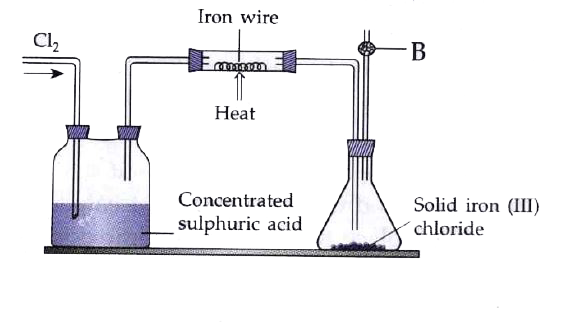write the dual purpose served by deoxyrobounucleoside truphosphates in polymerisation
Step-by-Step Solution:
1. Understanding Deoxyribonucleoside Triphosphates (dNTPs):
- Deoxyribonucleoside triphosphates are the building blocks of DNA. Each dNTP consists of a deoxyribose sugar, a nitrogenous base (adenine, thymine, cytosine, or guanine), and three phosphate groups.
2. Role in Polymerization:
- During DNA replication, dNTPs are incorporated into the growing DNA strand. The polymerization process involves the joining of these nucleotides to form a polynucleotide chain.
3. Energy Source:
- The first purpose served by dNTPs is that they provide energy for the polymerization process. When a dNTP is added to the growing DNA strand, the terminal phosphate bond of the dNTP is broken, releasing energy. This energy is essential for the formation of the phosphodiester bond between nucleotides.
4. Substrate for Future Polymerization:
- The second purpose of dNTPs is that they serve as substrates for future polymerization. After the incorporation of a dNTP into the DNA strand, it leaves behind a deoxyribonucleoside monophosphate (dNMP). This dNMP can then be used as a substrate for subsequent polymerization reactions.
5. Conclusion:
- In summary, deoxyribonucleoside triphosphates serve two primary functions during polymerization:
1. They provide the necessary energy for the polymerization reaction.
2. They act as substrates for the synthesis of new DNA strands.
- Deoxyribonucleoside triphosphates are the building blocks of DNA. Each dNTP consists of a deoxyribose sugar, a nitrogenous base (adenine, thymine, cytosine, or guanine), and three phosphate groups.
- During DNA replication, dNTPs are incorporated into the growing DNA strand. The polymerization process involves the joining of these nucleotides to form a polynucleotide chain.
- The first purpose served by dNTPs is that they provide energy for the polymerization process. When a dNTP is added to the growing DNA strand, the terminal phosphate bond of the dNTP is broken, releasing energy. This energy is essential for the formation of the phosphodiester bond between nucleotides.
- The second purpose of dNTPs is that they serve as substrates for future polymerization. After the incorporation of a dNTP into the DNA strand, it leaves behind a deoxyribonucleoside monophosphate (dNMP). This dNMP can then be used as a substrate for subsequent polymerization reactions.
- In summary, deoxyribonucleoside triphosphates serve two primary functions during polymerization:
1. They provide the necessary energy for the polymerization reaction.
2. They act as substrates for the synthesis of new DNA strands.
Topper's Solved these Questions
- BOOK - XII BOARD PREVIOUS YEAR PAPER ENGLISHCHAPTER - XII BOARDSEXERCISE - SET-II40videos
XII BOARDS
- BOOK - XII BOARD PREVIOUS YEAR PAPER ENGLISHCHAPTER - XII BOARDSEXERCISE - SET-III46videos
XII BOARDS
- BOOK - XII BOARD PREVIOUS YEAR PAPER ENGLISHCHAPTER - XII BOARDSEXERCISE - [OUTSIDE DELHI : SET-III ](SECTION-C)4videos
XII BOARDS
- BOOK - XII BOARD PREVIOUS YEAR PAPER ENGLISHCHAPTER - SAMPLE PAPER 2019EXERCISE - Section E Part B3videos
SAMPLE PAPER 2019
Similar Questions
Knowledge Check
- Question 1 - Select One
Which of the following purposes do you think is served by CO2 as an end product of fermentation in baking industry ?
AA) To lighten the doughBB) To give colour to breadCC) To give flavour to the breadDD) To produce beautiful shape
Name the specific enzyme responsible for nucleotide polymerisation in DNA replication. Write characteristic features of this enzyme. Name the region on E. coli DNA where this enzyme can initiate replication.
View SolutionWrite down the heteroheneous catalyst involved in the polymerisation of ethylene.
View SolutionWhat purpose is served by the terminals of a three way pin plug ? Draw a diagram and name the pins.
View SolutionWhich of the following techniques serve the purpose of early diagnosis than most conventional methods of diagnosis?
A. Recombinant DNA technology
B. PCR
C. ELISAView SolutionName the scientist who had used the set-up shown below. Write the purpose of 'a' in the set-up and the conclusion the scientist arrived at.
 View Solution
View SolutionThe given diagram is to prepare Iron(III) chloride in the laboratory:
(i) What is substance B?
(ii) What is the purpose of B?
(iii) Why is iron(III) chloride to be stored in a closed container?
(iv) Write the equation for the reaction between iron and chlorine.
 View Solution
View SolutionOmmatidia serve the purpose of photoreceptioin in
View Solution
